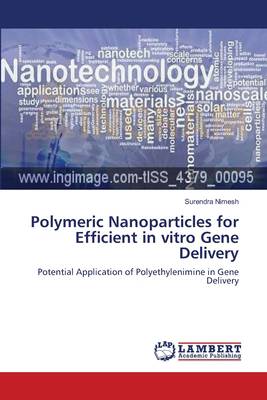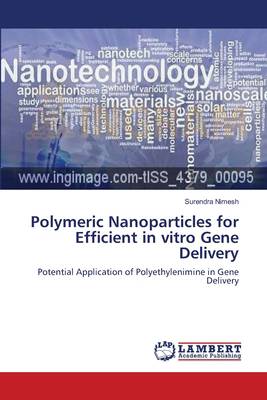
Door een staking bij bpost kan je online bestelling op dit moment iets langer onderweg zijn dan voorzien. Dringend iets nodig? Onze winkels ontvangen jou met open armen!
- Afhalen na 1 uur in een winkel met voorraad
- Gratis thuislevering in België vanaf € 30
- Ruim aanbod met 7 miljoen producten
Door een staking bij bpost kan je online bestelling op dit moment iets langer onderweg zijn dan voorzien. Dringend iets nodig? Onze winkels ontvangen jou met open armen!
- Afhalen na 1 uur in een winkel met voorraad
- Gratis thuislevering in België vanaf € 30
- Ruim aanbod met 7 miljoen producten
Zoeken
Polymeric Nanoparticles for Efficient in vitro Gene Delivery
Potential Application of Polyethylenimine in Gene Delivery
Surendra Nimesh
Paperback | Engels
€ 58,45
+ 116 punten
Omschrijving
With the continuous influx of knowledge about the role of genes involved in acquired or hereditary diseases, the delivery of regulatory genes or nucleic acids into affected cells is a potentially promising strategy. During the past few decades, a large number of systems have been explored to modify the biodistribution and bioavailability of biomolecules by using carrier systems such as liposomes, micelles and nanoparticles. Amongst various nanoparticles prepared from polycationic polymers, polyethylenimine (PEI) takes a prominent position due to its high transfection efficiency owing to its endosomal escape potential. To date, a large number of studies regarding incorporation of modifications into PEI to improve upon the gene transfer efficacy have been proposed. However, the problems of toxicity and poor gene delivery efficiency associated with PEI poses a major hurdle for in vivo studies. The work embodied in thesis started with the purpose of incorporating suitable modifications into PEI to improve in vitro transfection efficiency and cell viability. Suitable chemical modifications resulted in several folds improvement in transfection efficiency and reduction in cytotoxicity.
Specificaties
Betrokkenen
- Auteur(s):
- Uitgeverij:
Inhoud
- Aantal bladzijden:
- 156
- Taal:
- Engels
Eigenschappen
- Productcode (EAN):
- 9783659104572
- Verschijningsdatum:
- 21/05/2012
- Uitvoering:
- Paperback
- Formaat:
- Trade paperback (VS)
- Afmetingen:
- 152 mm x 229 mm
- Gewicht:
- 235 g

Alleen bij Standaard Boekhandel
+ 116 punten op je klantenkaart van Standaard Boekhandel
Beoordelingen
We publiceren alleen reviews die voldoen aan de voorwaarden voor reviews. Bekijk onze voorwaarden voor reviews.











